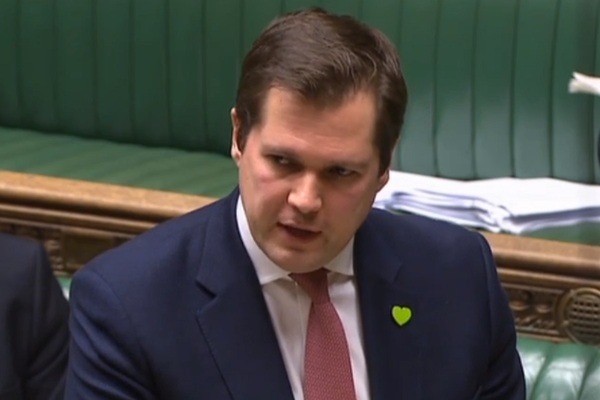You are viewing 1 of your 1 free articles

Negotiating with commercial occupiers? What housing associations need to know
As lockdown begins to ease, many housing associations that rent commercial property will have questions about their tenants. Jaspreet Dhillon provides some answers
With experts predicting that even fewer commercial tenants will pay their quarterly rent in June than in March, many registered provider landlords of commercial property are questioning what support is available to them as they battle through the lockdown.
Common themes for landlords include non-payment of rent, requests for rent suspension periods and tenants prematurely exercising their break options. Secondary to this is new tenancies being put on hold while tenants re-evaluate their business priorities.
As we look ahead, there is still uncertainty about what protection the government will offer.
The legal dilemma
The obvious impact of COVID-19 on business tenants has been their inability to trade or carry on business operations from their premises. This has resulted in requests to suspend rental payments and/or withhold payments altogether.
Section 82 of the Coronavirus Act came into force on 25 March 2020 and creates a moratorium on forfeiture for non-payment of rent during the “relevant period”. The relevant period is due to expire on 30 June 2020, but that is subject to further extensions.
Section 82 captures all business tenancies including those that fall under Part 2 of the Landlord and Tenant Act 1954, but not short fixed-term tenancies for periods of up to six months, tenancies at will or licences to occupy.
One nuance to this rule is tenancies that benefit from the protection of Section 82 because tenants have lawfully sublet a premises (and are therefore not in occupation themselves). This applies to those tenants who, for example, have a short fixed-term tenancy of six months but have lawfully allowed a sub-tenant to occupy the premises.
The lawful occupation of the sub-tenant protects the tenant under Section 82. This could become a problematic area for registered providers that would otherwise have relied on forfeiture for non-payment of rent, had a sub-tenant not been in occupation.
Finding the right approach
We are seeing a wide range of approaches being adopted, with many registered providers agreeing to a three-month rent holiday or deferral followed by a payment plan.
Others are also agreeing to monthly rent payments. While this provides less guaranteed income, it helps the tenant to manage cash flow. Where agreements are reached, these are being documented by informal concession agreements or letters, or more formally by lease variations.
We expect there to be a lot more financial transparency between landlords and tenants leading up to the June deadline. The difficulty registered providers are facing is distinguishing between problematic tenants who are not paying their rent for ‘pre-COVID’ reasons, and those who are facing economic difficulty as a result of the pandemic. There is also the question of whether tenants are correct in not paying their rent now to prevent insolvency later on.
For now, landlords should communicate with their tenants early to come to mutually agreeable arrangements. Agreements to reduce the rent should be formally documented, with consideration for the wider issues in varying the lease such as:
- Is the payment merely postponed to a later date (and if so, what are the terms to pay that deferred rent), or has the tenant been provided with a full rent concession? It is important to have a definitive due date for when that deferred rent will become payable, as this could impact when any Section 17 LTCA 1995 notice might be served.
- How long will the reduced rent period run for? This could be for a fixed period of time or until the “relevant period” (as defined in Section 82) comes to an end. If rent was previously paid quarterly in advance, then the parties should consider whether at the end of the concession period the full rent sum for that quarter should be apportioned.
- What will the implications be on a rent review date occurring during the concession period? Increasing the rent may not be a practical solution at that time, but if a review is carried out the parties should consider whether the concession would form part of the assumptions/disregards on review.
- Is there a guarantor guaranteeing the tenant’s obligations? If so, they will need to become a party to the rent variation.
- Should the concession benefit successors in title, or is this a personal agreement between the parties? Landlords should consider this point carefully if they wish to dispose of their interest in the property; terms that are not expressed in a lease (or variation) as being personal will bind successors in title.
Where some deals were put on hold at the start of the pandemic, many are now resuming with revised terms. The common solution is to put in place an agreement that is conditional upon the lockdown being released. Such wording is often quite wide and therefore not the best solution for landlords, but at times may be necessary to create security within the transaction. Some tenants are also seeking longer rent-free periods and the ability to exercise a break option more frequently during the term.
Looking ahead, we can predict that lease terms of three years will become the new norm, and a possible shift towards upwards-downwards rent review (rather than the industry standard ‘upward-only’ rent reviews). For now at least, the next quarter period should give us a clearer picture of the commercial landscape ahead.
Jaspreet Dhillon, solicitor, TLT
Sign up for our daily newsletter
Already have an account? Click here to manage your newsletters










